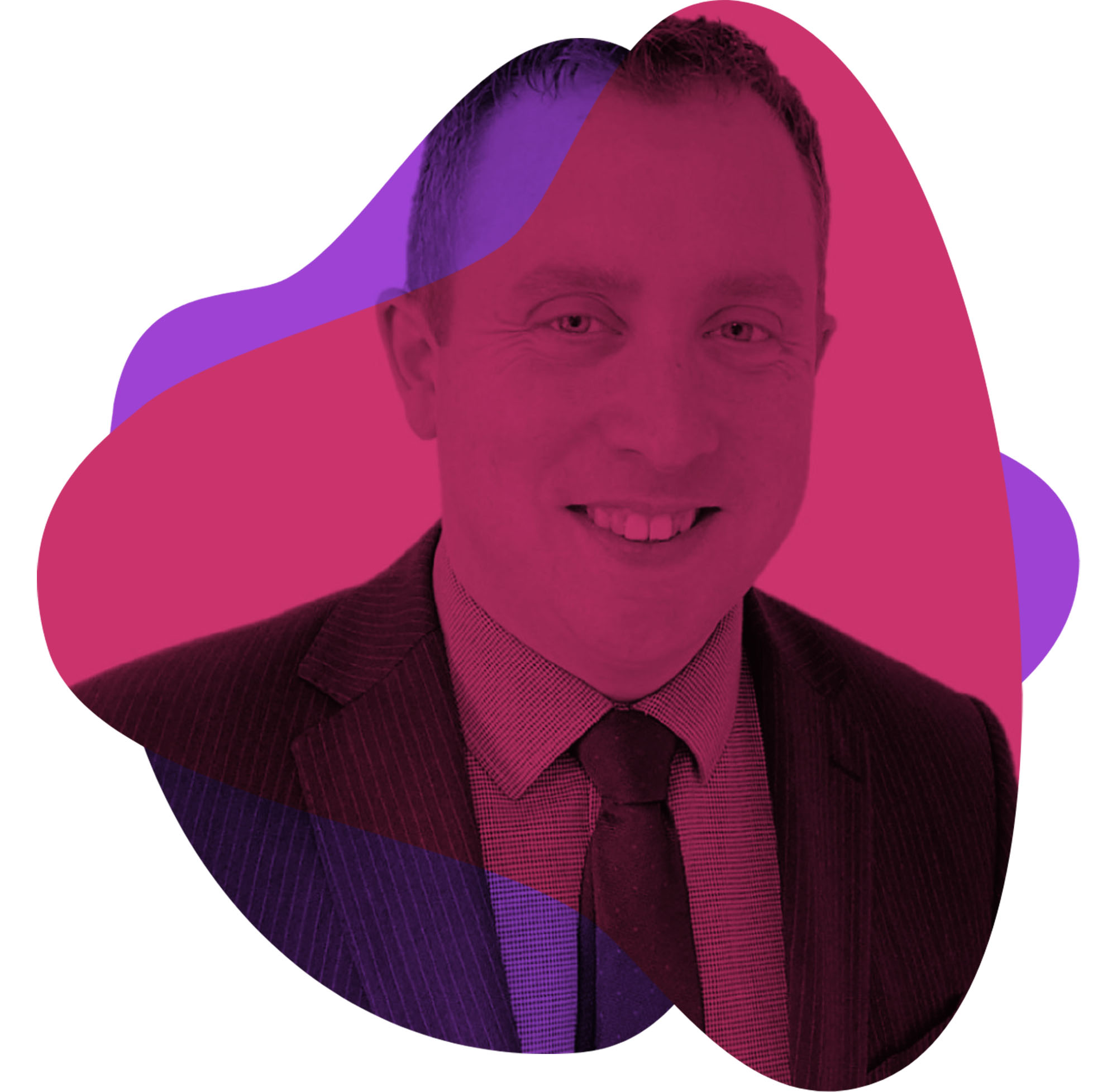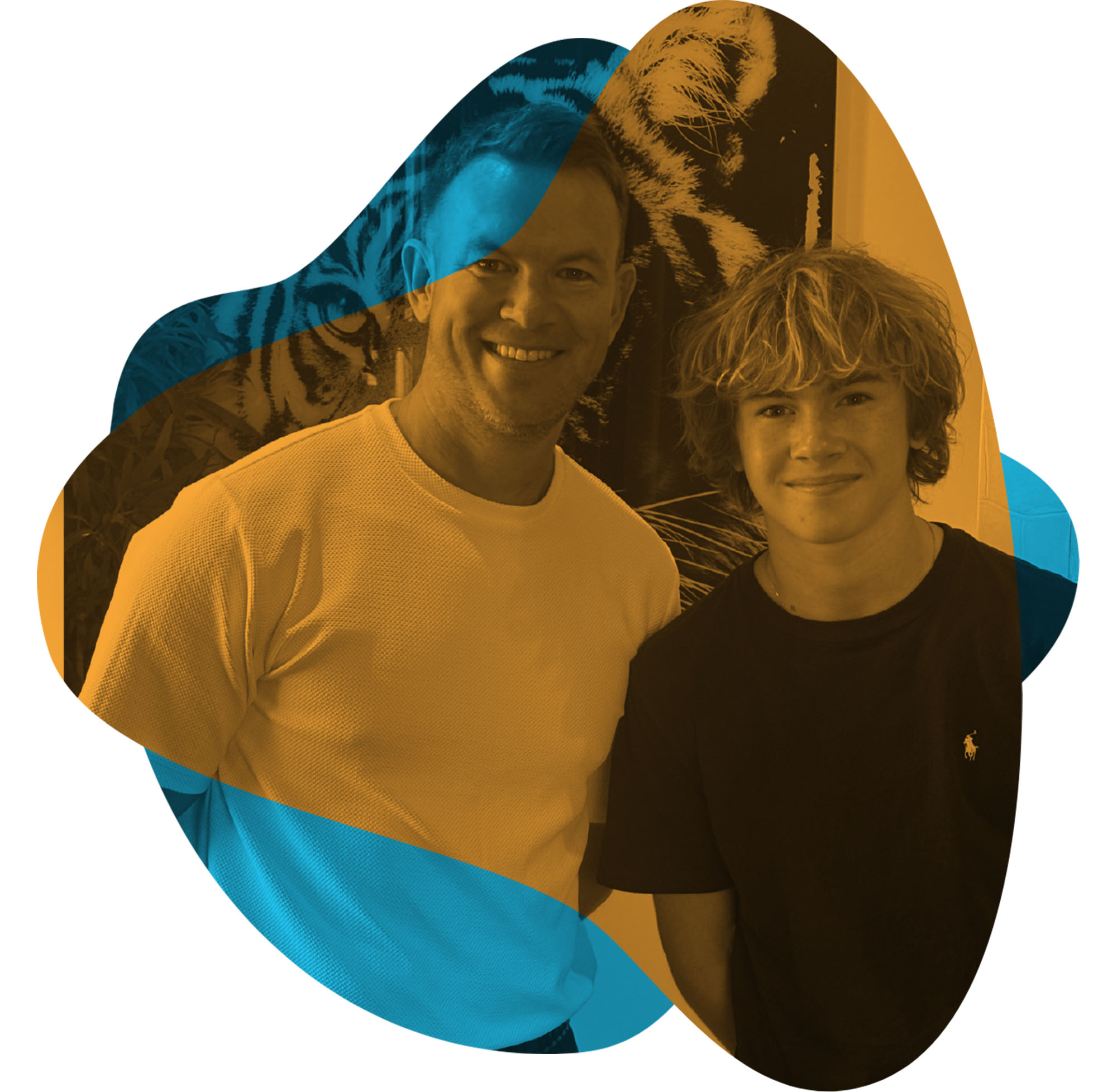Urooj Khan is the Director and People Lead at KPMG Lower Gulf Limited and has over 15 years of experience in providing financial statement audit services in the UAE to international and local clients.
Urooj is passionate about championing inclusion, diversity and equity within the workplace.
When we leave our comfort zone, we take a step back from what we've done before to make progress. What do you think this point of view can bring to the workplace as a whole?
We have the potential to become our own greatest enemies if we adhere rigorously to doing what we've always done and what makes us feel "comfortable" and secure. People with leadership or managerial roles can easily get preoccupied with day-to-day tasks in our sector. To grow professionally as well as personally, it is important to challenge oneself by doing something outside of one's comfort zone. It's possible that the thought of taking a step back and re-evaluating will make you anxious, but the benefits in the long run can far surpass concerns. If you push yourself beyond the bounds of your comfort zone, you can end up meeting people you would never have expected. We can be held back by our worries, but if we challenge ourselves to accomplish something that we did not believe we were capable of, it can help us build confidence and overcome barriers to leadership that we may face in the future.
I strongly suggest that you begin something new today. Getting outside of your comfort zone can help you grow as a professional and accomplish new goals in your life.
Why are you passionate about working in a corporate organisation as a woman in a leadership role?
Let me explain this with a story. When I was trying to get into an audit firm, I incidentally met Tehmina, who was working in a leadership role for a corporate firm. Soon, she became my mentor and assisted me in my training to become an auditor for one of the big four accounting firms.
I believe that I have been very fortunate, and I thank God for it. But I do recognize that I am here because of the opportunities I was given and the support system I had when I was working towards reaching my current position. There may be another woman out there with the same talent, skills, and potential, but she may not have the same opportunities and support as I did.
We would all know a woman within our surroundings who had to prioritize their families over pursuing their creative or professional goals, and as a result, those goals were never realized. There is still a significant lack of diversity and equity in the business world as a whole, and a great deal more has to be changed and fought for. Women in positions of leadership are given the authority and the platform necessary to steer the agenda of the Inclusion, diversity and equity (“IDE”). I believe we owe it to the millions of women who are having challenges and not obtaining the appropriate opportunities, who are fighting to have their voices heard, or who are looking for a female mentor to guide them through the business culture. And for this reason, working in a business organisation as a woman at a leadership level is something that really excites and motivates me.
What's your biggest professional achievement?
Throughout the course of my professional life, there were relatively few women in leadership positions to whom I could look up to, and as a result, I did not have many female mentors. As I climbed the corporate ladder, I made it a personal mission to convey a constructive female perspective wherever possible. One of my greatest accomplishments in my work life is that I have been able to act as a role model and advocate for other women, assisting them in developing their self-confidence and guiding them through the difficulties they face. Mentoring is one of the most effective techniques, in my opinion, for helping to bridge the gender gap in a company’s leadership positions.
In addition to that, I am a People’s Leader and an IDE champion at KPMG Lower Gulf. It allows me to create the inclusive culture I want to see in the world, where people feel comfortable speaking their minds. I consider it a major accomplishment when staff members come to me to discuss their mental health issues, unconscious biases, or any other personal or professional issue they may be dealing with. My firm's leadership is very encouraging and enthusiastic and are constantly working towards achieving the IDE goals.
You are close to several charitable organisations. Can you tell us how some of these are working to reduce inequalities?
I do a lot of work with TCF, an organisation in Pakistan that provides education to remove barriers of class, privilege, and gender bias. Their model consists of schools that are established with a majority of female teachers and a male-to-female ratio of 50 percent. They establish schools in the middle of urban slums as well as rural areas where female education is not given a high value. In addition, they provide women with the opportunity to receive vocational training to increase their economic options. They also lay an emphasis on educating and strengthening women who are marginalised due to factors such as displacement, poverty, and uneven rights, who have no chance of succeeding, and whose voices are never heard.
Living in Dubai, what advice would you offer to women looking to relocate and seek a leadership role?
Based on my personal experience, I would highlight some points for women looking to relocate.
- Gender equality
The government of UAE is working towards achieving gender equality, particularly in positions of authority (1). KPMG Lower Gulf Limited was one of the first companies to sign the UAE Gender Balance Council's commitment, which is called the SDG 5 Pledge to Accelerate Gender Balance in the UAE private sector (2). Since then, many more organisations have also signed the pledge. Equal pay, employment, and promotion on the basis of gender equality, including senior leadership roles, integrating gender balance into the company's policies and programs, and transparency are the four basic pillars that make up the promise. The pledge also includes senior leadership positions. In addition, numerous laws have been introduced in order to empower women. For example, the UAE Cabinet has passed a bill that ensures women and men receive equal pay for equal work, and the Cabinet has made it mandatory for females to be on the board of directors for all government groups and firms (3).
These new regulations indicate that the United Arab Emirates is paving the way for women to become crucial decision-makers both now and in the future.
- A multi-cultural environment
UAE is a cosmopolitan area to live and work and it is not unusual in UAE to see a single workplace inhabited by people from a diverse range of countries, which helps to foster an atmosphere that is both creative and vibrantly multi-cultural. It is a culture-sensitive workplace that welcomes people of all backgrounds. One of the best things is that you are accepted as you are, with your own cultural and social preferences. You don’t have to force yourself to do things you are not comfortable doing in order to just "fit in". You always have the choice to respectfully decline and provide an explanation of your preferred cultural practices and set your boundaries.
- A safe place for women
UAE provides a high degree of comfort and safety, which is undoubtedly one of the most significant advantages for women who have chosen to live abroad. The majority of residential buildings are outfitted with cutting-edge security technology, and there is typically a security officer stationed at most places. It is one of the safest cities for women to live in and is a critical factor which influences women to move to UAE (4).
- Career opportunities
UAE is a global talent magnet and provides numerous chances for professional advancement. The United Arab Emirates is a business hub, meaning there are many opportunities for foreign women to think big and aspire to new heights while living there. The UAE has developed into the world's pre-eminent location for individuals to live and work as a result of the rapid expansion of employment opportunities. Following COVID-19, the UAE has become a more desirable location for women as a result of the hybrid working style and flexibility.
What are your views on how clean energy can positively affect the MENA region?
The Middle East and North Africa region has tremendous untapped potential in terms of renewable energy sources, particularly solar and wind power. In addition, because most MENA countries are situated in the sun belt, there is a correlation between the peak hours of sunshine and the peak hours of demand for energy. The MENA region contains abundant renewable energy sources, which can be used to construct an ecosystem that is sustainable. Now, countries are making investments in green energy, working to reduce their carbon footprint, and promoting sustainable development.
There have been huge initiatives in the MENA regions especially UAE to move towards clean energy. The UAE’s Energy Strategy 2050, for example, aims to increase the contribution of clean energy in the energy mix to 50 percent and reduce the country’s carbon footprint of power generation by 70 percent. If this result is achieved, this could help in saving $190 billion equivalent to AED 700 billion by 2050, while increasing energy consumption efficiency of individuals and corporates by 40 percent. It is also anticipated that Masdar City in Abu Dhabi will become the most sustainable eco-city in the world. It is anticipated that this metropolis will serve as a model for other cities seeking to accommodate rising urbanization by effectively using its energy, water, and waste resources (5).
In addition, the region has a wealth of existing knowledge and expertise in the energy sector. By moving quickly, the region can successfully, shift its focus to renewable energies including the hydrogen industry, which offers a potential of new areas of growth.
Not only does clean energy result in less global warming and less pollution, but it improves public health in general, and offers inexhaustible energy, more jobs, and stable energy prices.
Additional advantages for the MENA region associated with a source of energy that is both environmentally friendly and long-term viable include the following:
- The MENA region is fortunate to have a sun-centric geographical positioning, which creates extra income streams and economic opportunities.
- Spending less money on treating health concerns caused by air pollution
- Reduce your spending on efforts to combat climate change and global warming.
- Spend the money you save on addressing other environmental and social concerns.
- When compared across a variety of metrics, the creation of jobs in the field of renewable energy is typically higher than that of fossil fuels. Jobs in the energy industry might be safer. As per the findings of several studies, the total number of jobs will actually rise over the next 20 years, even if the proportion of electricity generated from renewable sources continues to grow at a slower rate than it would if the energy mix contained a greater proportion of fossil fuels (6).
(1) https://u.ae/en/information-and-services/social-affairs/gender-equality/gender-balance
(3) Women on every UAE board, rules Cabinet (thenationalnews.com)
(4) UAE tops global ranking for women's personal safety (thenationalnews.com)
(5) All you need to know about the UAE Energy Strategy 2050 - MyBayut
(6) A_New_Source_of_Power-FINAL.pdf (stanford.edu)









